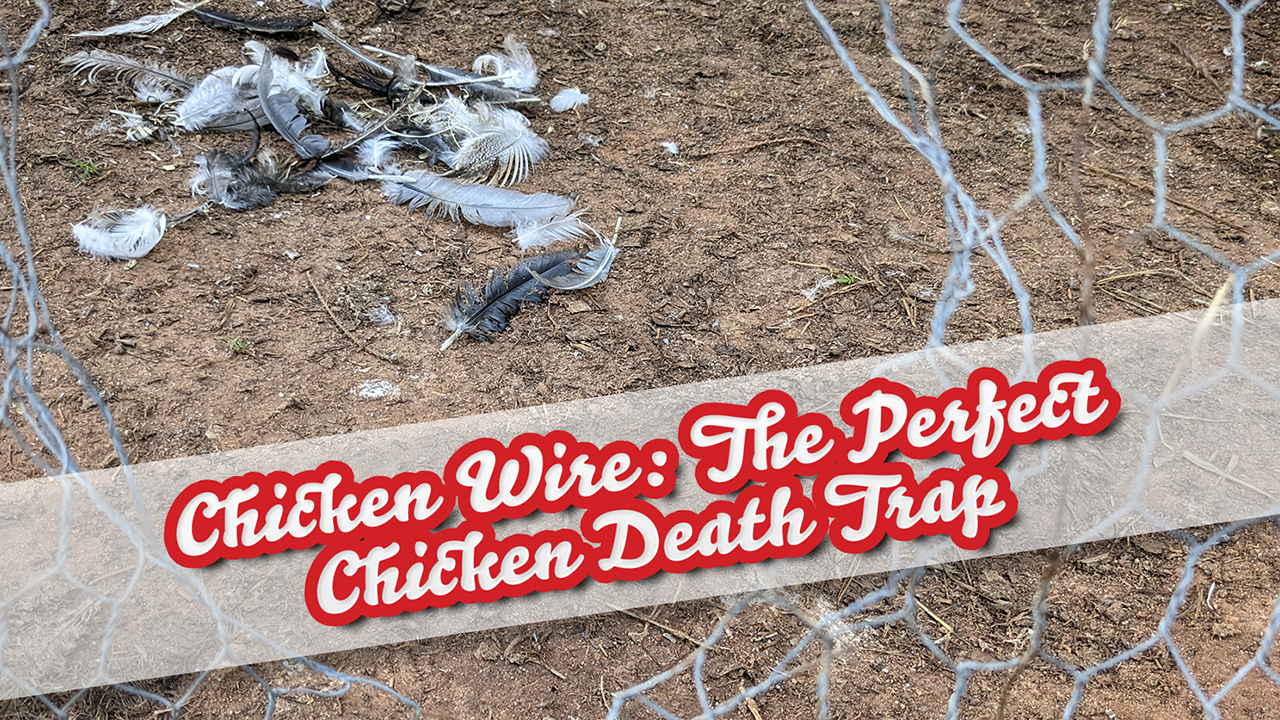
Is chicken wire really good for my chicken run?
So you are building your chicken coop and run. Awesome! Now you trying to figure out what you need to keep those sweet chickens in and the evil predators out? You think to yourself that you need chicken wire right? Why wouldn’t you think that? It’s in the name…chicken wire! Of course, you are going to think that chicken wire is a reliable fencing option for your chicken run. But, what is chicken wire?
Chicken wire, also known as poultry netting or wire mesh, is a type of wire fencing typically made from thin, flexible galvanized steel wire. It is widely used in various applications, especially in agriculture and gardening. The name “chicken wire” comes from its primary use, which is to create enclosures or “protective barriers” for poultry and other small animals, preventing them from wandering off or protecting them from predators.
Problem: Chicken wire keeps your chickens in, but not predators out
they KILLED ALL OF THEM {watch this before you use chicken wire} by Better Together Homestead
While this mesh wire will prevent chickens from wandering off, however, does it really prevent predators from getting those fluffy butts? NO, it does not and I’ll explain why.
As mentioned earlier, this wire is very thin. The holes in it are quite wide making it a pretty flimsy material. It’s very easily bendable. Predators (depending on your location) are oftentimes, snakes, raccoons, foxes, rats, opossums, and dogs. Raccoons are clever and dexterous animals, and they can sometimes find ways to get through this wire. If you can make the run raccoon-proof, then it should be pretty secure (again this varies on location so if you have larger predators like bears, you may need additional security measures).
Here are some ways predators can breach chicken wire:
- Pulling or bending the wire: Raccoons have strong paws, and they might try to pull or bend the chicken mesh to create an opening.
- Gnawing: Raccoons have sharp teeth and can try to gnaw through weak spots in the wire.
- Climbing: Raccoons are skilled climbers. They can use nearby trees or buildings to gain access to the top of the poultry wire.
- Digging: Raccoons can be persistent diggers. If the chicken wire is not buried or secured at the bottom, raccoons may attempt to dig under it to access the chickens.
- Squeezing through gaps: If there are any gaps or holes in the chicken wire, raccoons may attempt to squeeze through them.
- Leveraging objects: Raccoons are known for their problem-solving abilities. They may use nearby objects, such as branches or rocks, to try to pry open weak points in the chicken wire.
I have seen stories where a raccoon was described as grabbing chickens through the chicken wire and eating them through the wire. Sounds pretty gruesome doesn’t it?
SOLUTION: Hardware cloth to the rescue
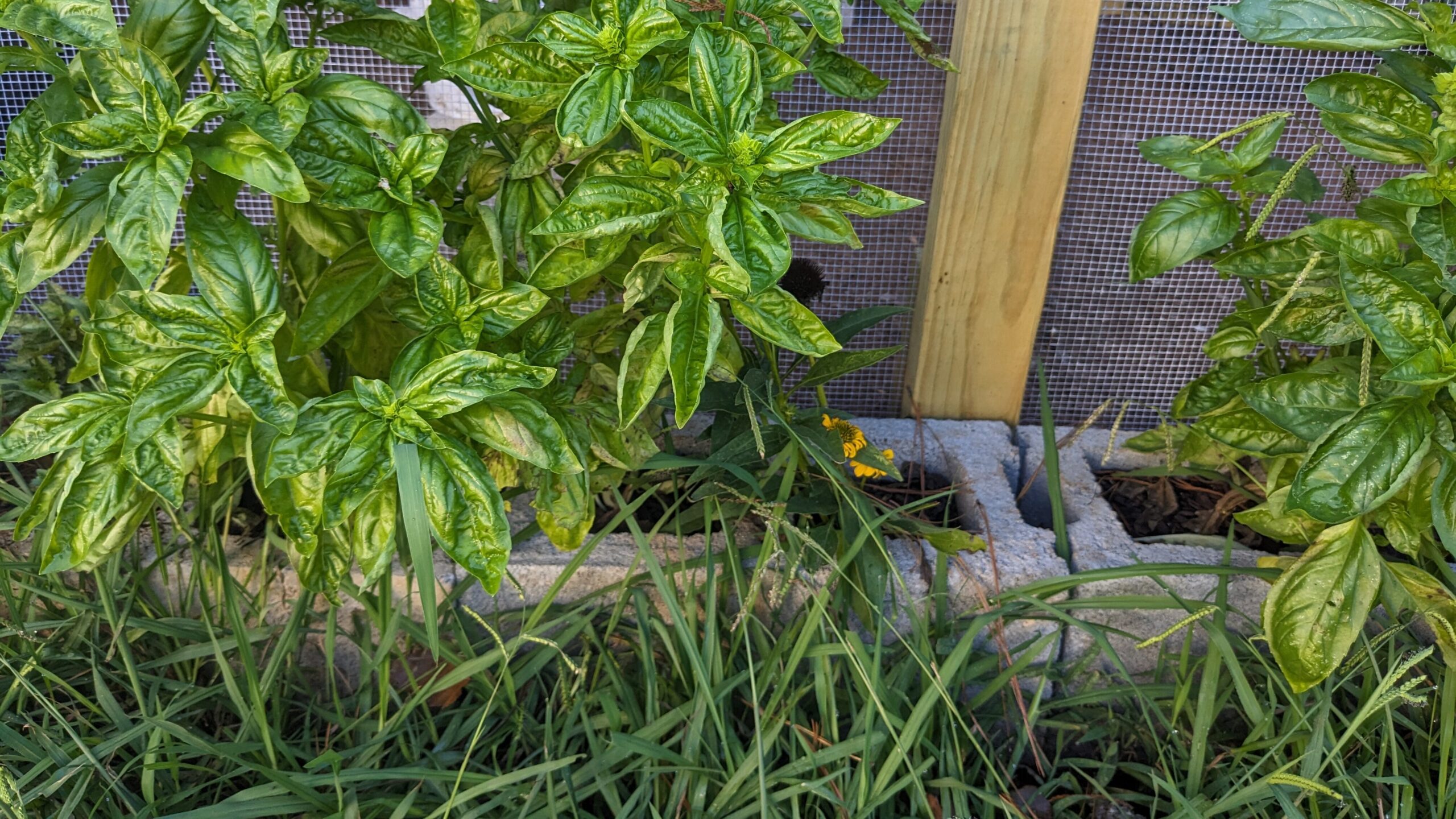
When designing a chicken coop and chicken run it will never be 100% predator-proof. But like any other project where security is important, it’s all about risk mitigation. For your chickens, what is most important for protecting your flock compared to the cost?
To enhance the security of the chicken coop and run and protect against predators, consider using hardware cloth and not chicken wire. Hardware cloth is a more robust wire mesh. It is made from sturdy, galvanized steel wire, which is woven to create a grid pattern with small square or rectangular openings. The main characteristics of hardware cloth include:
- Small Openings: Hardware cloth typically comes with small openings, usually measured in fractions of an inch (e.g., 1/4 inch, 1/2 inch, 1 inch). The size of the openings determines the mesh’s ability to keep out various pests and animals.
- The ¼ inch may be best as the holes are then too small for snakes to slither through.
- Sturdiness: Compared to regular chicken wire, hardware cloth is stronger and less flexible, making it more resistant to bending and breaking. There are varying gauges (thicknesses) of hardware cloth so be sure to pay attention to that. We recommend nothing less than 23 gauge. The lower the number the thicker and more sturdy the hardware cloth.
- Versatility: Due to its strength and durability, hardware cloth is suitable for a wide range of applications, including animal enclosures, gardening, pest control, and DIY projects.
Burying hardware cloth + cinder blocks for extra layers of security
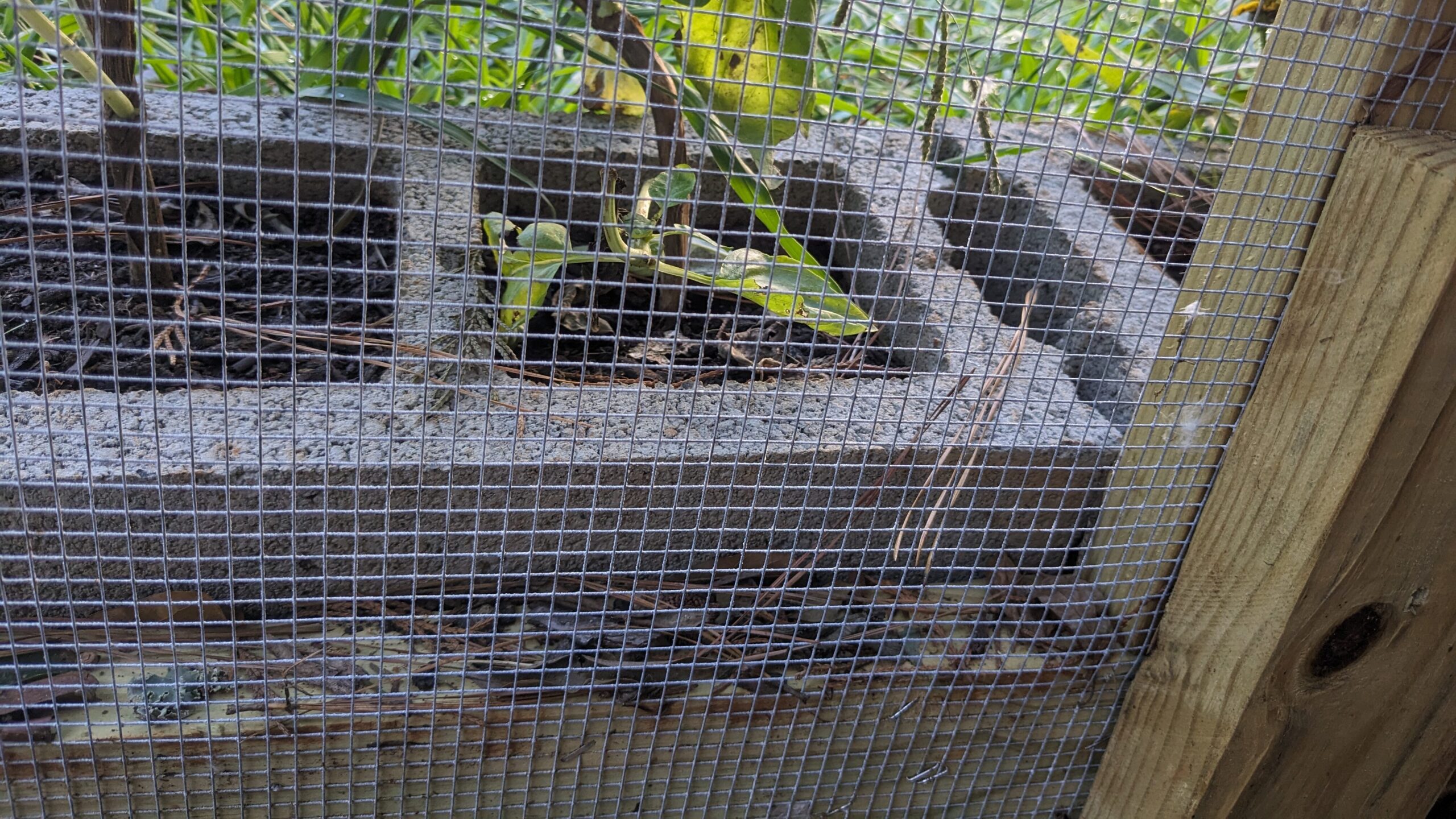
What you may also want to consider for predators that will try to dig under your coop is burying the mesh 2-6 inches into the ground. Then also reinforcing with cinder blocks around the perimeter of the run. This should help prevent those diggers. I even planted herbs and flowers in the cinder blocks to give the chickens something different to snack on.
When selecting hardware cloth for your chicken coop and run, consider the size of the openings and the gauge of the wire. The smaller the opening size and the thicker the wire gauge, the stronger and more durable the mesh will be. Choose the appropriate hardware cloth that suits your needs and provides the necessary level of protection. This isn’t to say that hardware cloth is 100% foolproof, but it’s a much better defense than flimsy chicken (mesh) wire.
Good luck building your chicken coop and run! We have built ours from scratch.
Be on the lookout for posts describing: how we resourced materials, created the design that works for us, as well as we’re planning to build a chicken tractor for our meat chickens!
As always, feel free to reach out if you have questions, comments, or topics you’d like us to discuss!


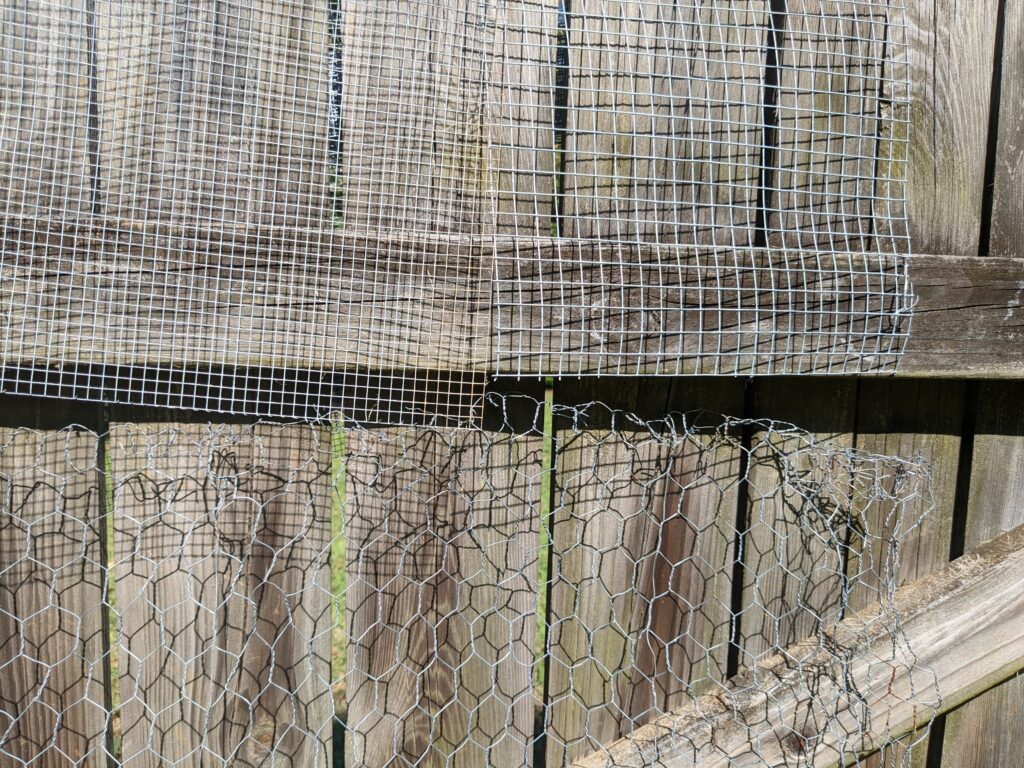
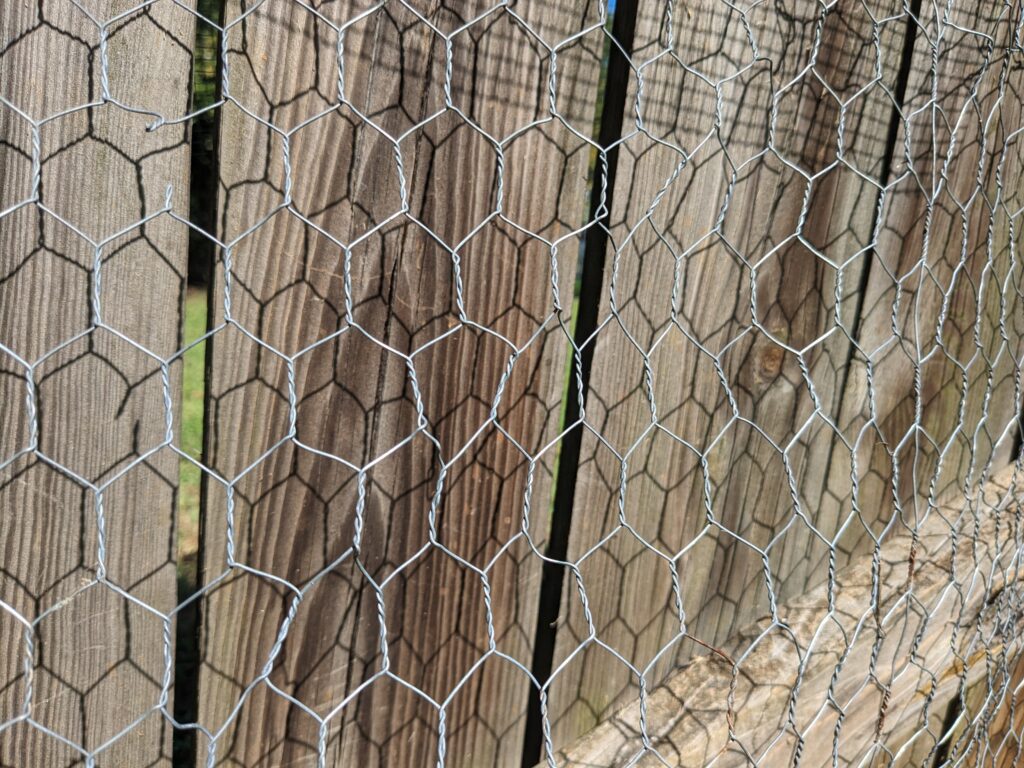
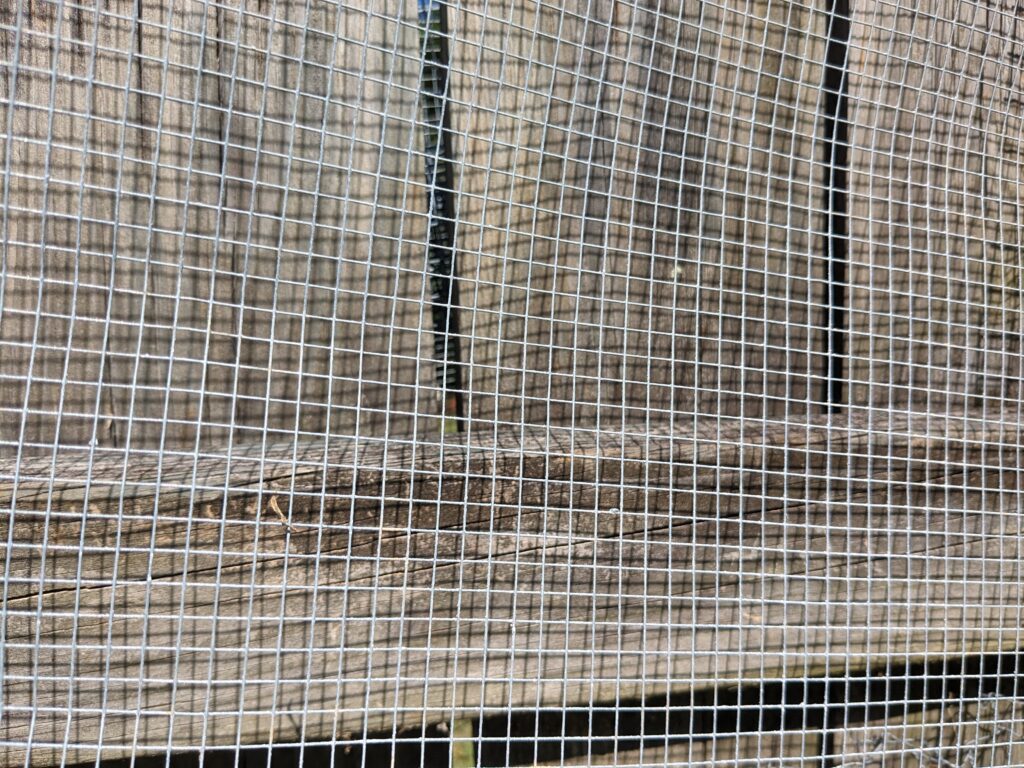
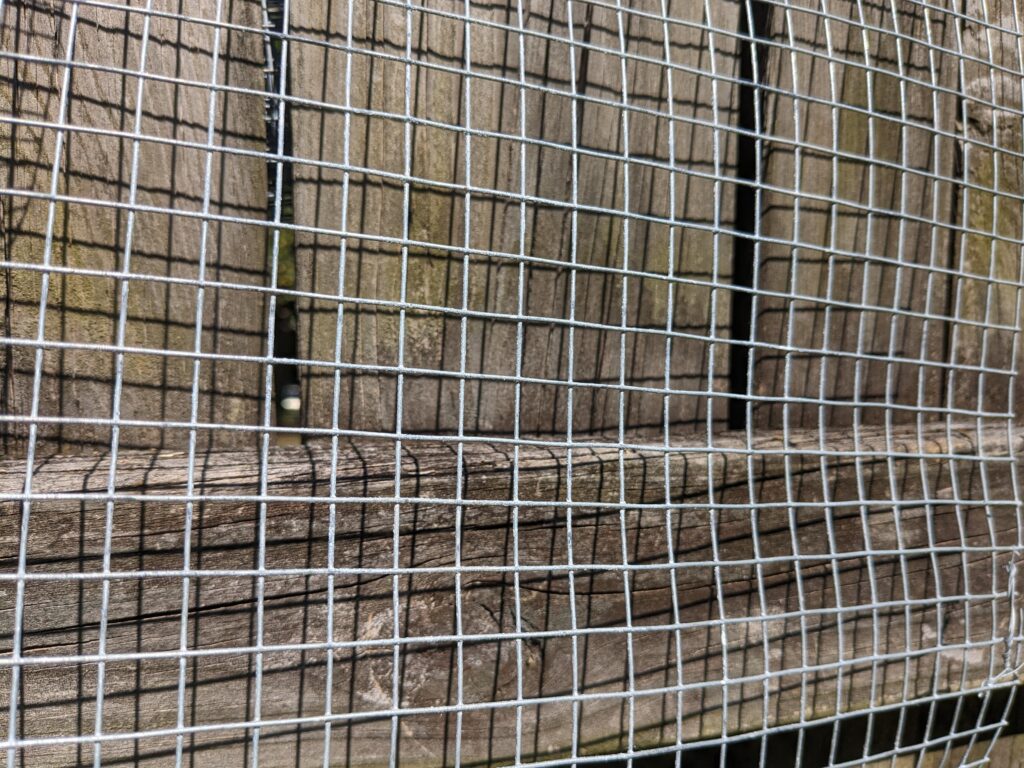
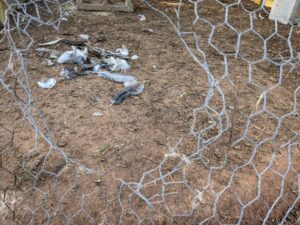

Leave a Reply